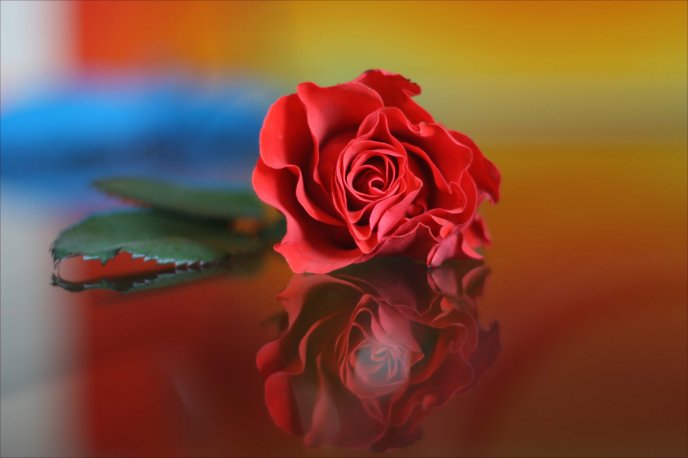FWP:
SETS == A,B
JALVAH: {7,4}
MIRROR: {8,3}
SPRINGTIME: {13,2}
The first line is a terrific piece of work-- two quite different readings, each of which meshes with the second line in several possible ways. Most of the commentators seem to go with (1a), reading uṭhā as the perfect of uṭhnā , to 'arise, rise up'. On this reading, the 'enjoyableness' [lut̤f] (of the glories/appearances of meanings) is what 'arose'. By contrast, (1b) reads uṭhā as the intimate imperative of uṭhānā , to 'cause to rise up', or to 'experience', 'take up', 'lift up', or many other such meanings. For a wider sense of the multifarious possibilities, see both definitions above.
Then of course dil se can mean 'from the heart', 'with the heart', or 'by means of the heart', as part of a description of the source of the enjoyableness. But more generally, it can also mean merely 'wholeheartedly', especially in (1b), as Bekhud Mohani demonstrates when he turns it into dil-o-jān se , 'with heart and soul', meaning something like 'with all your heart'.
Then we also have to ask ourselves how the two lines connect. Do they describe similar or parallel situations, as Nazm and other commentators maintain? On this view, heart is to glories/appearances of meanings as rose is to spring. Or are we to take the contemplation of spring and the natural world as primary, as a model for our own secondary, derivative mental activity? Or are we to take our own pursuit of the glories/appearances of meanings as primary, with the rose mirroring the spring as merely a smaller, simpler, illustration?
In short, there's a 'blooming, buzzing confusion' that's perfectly evocative of springtime-- a profusion of plurals, a tangle of twisting greenery, glories/appearances, and meanings that can't be made to settle assuredly into any one design. Do meanings spring up organically, like roses? Is the heart a generator, or a reflector, or both? Are hearts roses, or roses hearts, or are we meant to notice their differences as well as their similarities?
Compare Mir's paean to the physically small but metaphysically potent heart [M{1669,2}]:
auj-o-mauj kā āshob us ke le ke zamīñ se falak tak hai
ṣūrat meñ to qat̤rah-e ḳhūñ hai maʿnī meñ daryā hai dil
[the devastation of its swell and wave have taken it from the ground to the sky--
in appearance, well, it's a drop of blood; in meaning, it's a river/ocean, the heart]

Nazm:
The mirror in which the beauty and radiance of the spring is to be seen, is the rose; in the same way, the mirror in which the glory/appearance of meaning is to be seen, is the heart. (191)
== Nazm page 191